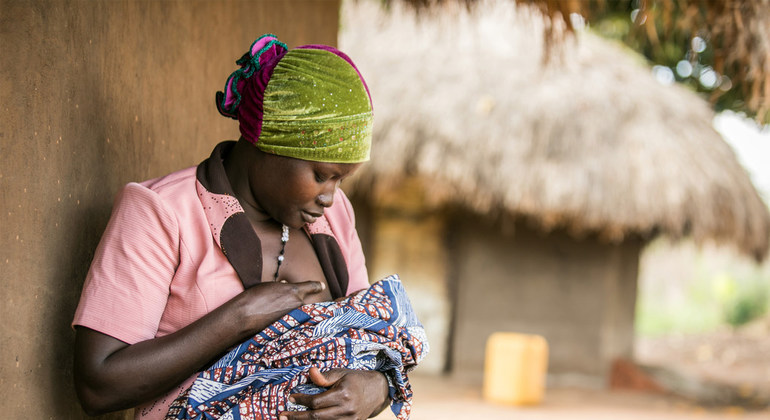Titled Marketing of Breast‐milk Substitutes: National Implementation of the International Code – Status report 2020, the study highlights the need for stronger legislation to protect families from false claims about the safety of breast-milk substitutes or aggressive marketing practices, findings that take on increased importance during the COVID-19 pandemic.
The UN World Health Organization (WHO), the UN Children’s Fund (UNICEF) and the International Baby Food Action Network collaborated in the report’s publication.
Impact of aggressive marketing
“The aggressive marketing of breast-milk substitutes, especially through health professionals that parents trust for nutrition and health advice, is a major barrier to improving newborn and child health worldwide,” says Francesco Branca, Director of WHO’s Department of Nutrition and Food Safety.
“Health care systems must act to boost parent’s confidence in breastfeeding without industry influence so that children don’t miss out on its lifesaving benefits.”
WHO and UNICEF encourage women to continue to breastfeed during the pandemic, even if they have confirmed or suspected COVID-19, as evidence indicate it is unlikely that COVID-19 would be transmitted through breastfeeding. “The numerous benefits of breastfeeding substantially outweigh the potential risks of illness associated with the virus,” the authors find.
Of the 194 countries analyzed, 136 have in place some form of legal measure related to the International Code of Marketing of Breast-milk Substitutes and subsequent resolutions adopted by the World Health Assembly. While 44 countries have strengthened their regulations on marketing over the past two years, only 79 countries prohibit the promotion of breast-milk substitutes in health facilities, and only 51 have provisions banning the distribution of free or low-cost supplies within the health care system.
Further, only 19 countries have banned the sponsorship of professional association meetings by manufacturers of breast-milk substitutes, which include infant formula, follow-up formula and growing up milks marketed for use by infants and children up to 36-months old.
Trained healthcare professionals know best
WHO and UNICEF recommend that babies be fed nothing but breast milk for their first six months, after which they should continue breastfeeding – as well as eating other nutritious and safe foods – until two years of age, or beyond.
Babies who are exclusively breastfed are 14 times less likely to die than those who are not, the authors stress. Yet, only 41 per cent of infants 0–6 months old are exclusively breastfed, a rate WHO Member States have committed to increase to at least 50 per cent by 2025.
Inappropriate marketing of breast-milk substitutes continues to undermine efforts to improve breastfeeding rates. Measures to prevent the spread of COVID-19, such as physical distancing, meanwhile hamper community counselling and mother-to-mother support services for breastfeeding – leaving an opening for the breast-milk substitute industry to capitalize on the crisis.
“We must, more than ever, step up efforts to ensure that every mother and family receive the guidance and support they need from a trained health care worker to breastfeed their children, right from birth, everywhere,” stressed UNICEF Chief of Nutrition Victor Aguayo.
The Code bans all forms of promotion of breast-milk substitutes, including advertising, gifts to health workers and distribution of free samples. Labels cannot make nutritional and health claims or include images that idealize infant formula. Instead, labels must carry messages about the superiority of breastfeeding over formula and the risks of not breastfeeding.


